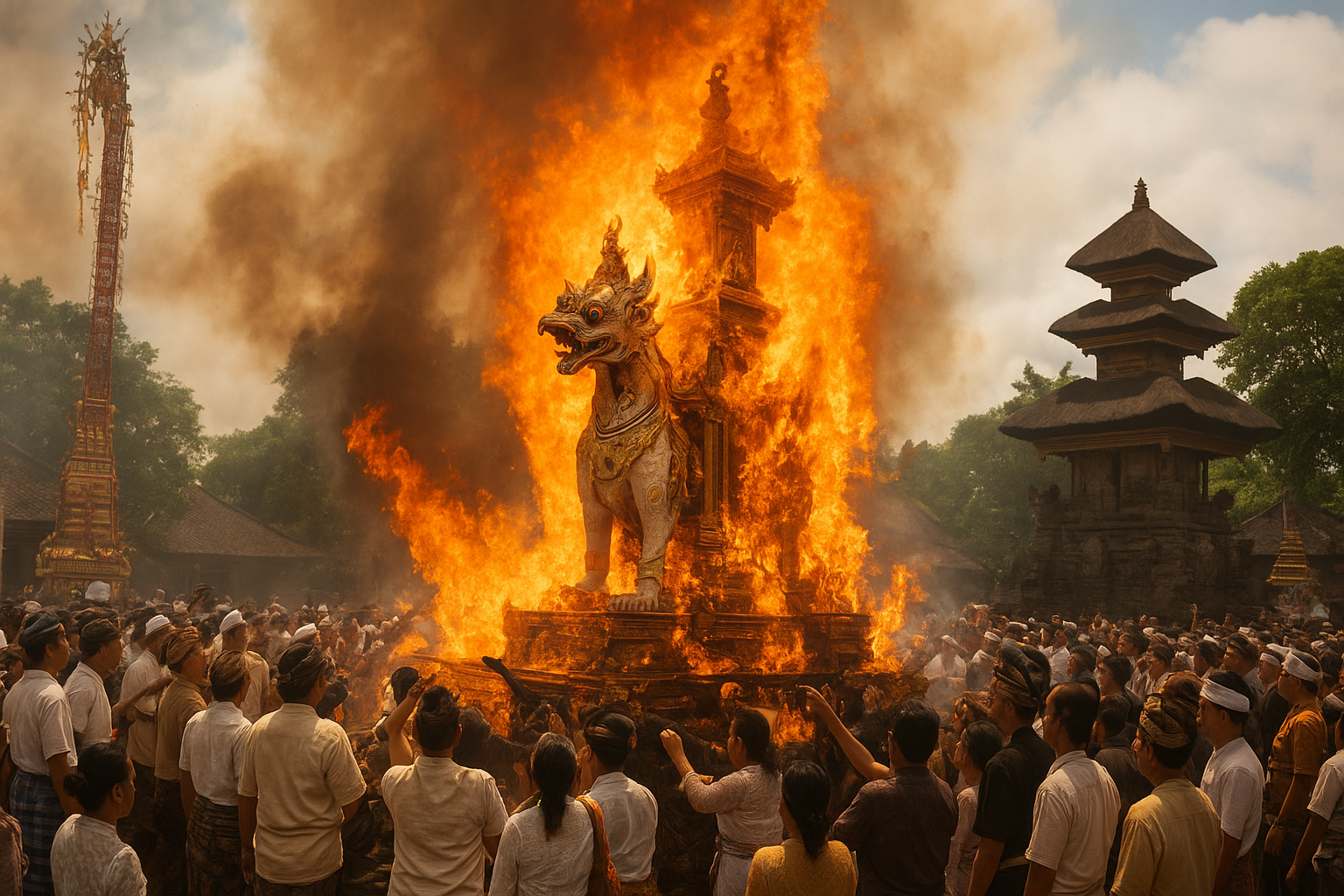A Celebration of Life: Balinese Rituals from Birth to Afterlife
Honouring Every Stage of Life in Balinese Tradition

The Sacred Cycle of Balinese Life
In Bali, life is seen as a sacred journey marked by rituals that guide the soul from birth to afterlife. Known as manusa yadnya, these ceremonies are expressions of balance between the self, community, nature, and the divine. Each rite — from pregnancy blessings to the cremation ceremony — reflects Bali’s unique way of honouring life’s transitions with meaning, beauty, and devotion.
In Bali, life is understood as a sacred cycle — a journey of the soul that begins before birth and continues long after death. Each stage is marked by rituals known as manusa yadnya (human rites), carefully designed to honour, protect, and guide the individual. These ceremonies are not simply traditions but profound expressions of the Balinese worldview: that harmony must always be maintained between the self, the community, nature, and the divine.
Below are the highlights of this life’s journey, celebrated in ways both intimate and grand.
Before Birth — Magedong-gedongan
The journey begins in the womb. During the seventh month of pregnancy, the Magedong-gedongan ceremony is performed to bless the mother and unborn child. Offerings are presented to ensure protection and balance, while prayers acknowledge the soul that has entered the fetus. This rite reflects the Balinese belief that life must be safeguarded even before it emerges into the world.
The First Steps — Early Childhood
The earliest years of a Balinese child’s life are marked by profound symbolism. Among the most meaningful milestones are:
• Nyambutin (42 days): A prayer to welcome the child’s soul fully into human existence, bridging the seen (sekala) and unseen (niskala) realms.
• Ngelepas Hawon (3 months): The first time a baby’s feet touch the ground. Until then, infants are carried, as they are considered too pure to meet the earth. This tender moment represents a child’s arrival into the world of humans.
• Otonan (210 days): The child’s first birthday on the Balinese calendar. It is celebrated with offerings and blessings, a ritual that will be repeated every 210 days throughout their life.
Coming of Age — Metatah
Adolescence in Bali is marked by one of the most important rites of passage: the Metatah or tooth-filing ceremony. The pointed canine teeth are gently filed down to symbolically remove negative traits — greed, anger, desire, confusion, intoxication, and jealousy. It is not merely a cosmetic act, but a spiritual refinement that prepares the individual to embrace adulthood with grace and self-control.
Marriage — Pawiwahan
Marriage in Balinese culture is far more than a union of two people. The Pawiwahan ceremony unites families, reinforces ancestral ties, and ensures the continuity of the lineage. Through prayer, offerings, and sacred vows, a couple enters into a shared duty not only to one another but also to their community and their ancestors.
Ngaben — The Cremation Ceremony
Death in Bali is not seen as an end, but as a magnificent transformation. The Ngaben cremation ceremony is perhaps the most spectacular of all life-cycle rituals. Families construct elaborate funeral towers (wadah) and animal-shaped sarcophagi (lembu), in which the deceased is carried to the cremation site. The body is burned, releasing the soul from its earthly vessel so it may continue its journey toward reincarnation or ultimate liberation (moksha).
While grand in scale and cost, the ceremony is filled with colour, music, and community spirit — a celebration of the soul’s freedom rather than an occasion of mourning.
The Philosophy of Life’s Journey
These rituals highlight the true beauty of Balinese philosophy, that every stage of life is sacred and deserves to be honoured and celebrated. From the blessings of the womb to the fiery send-off of the soul, the Balinese never cease to celebrate life’s transitions. Each ceremony is a poignant reminder that humans exist in a delicate balance — between the physical and spiritual worlds, between joy and sorrow, between the beginning and the end.
In Bali, life is not measured only by the years lived, but by the moments ritually marked, lovingly remembered, and spiritually cherished.
.svg)

.png)
.webp)

